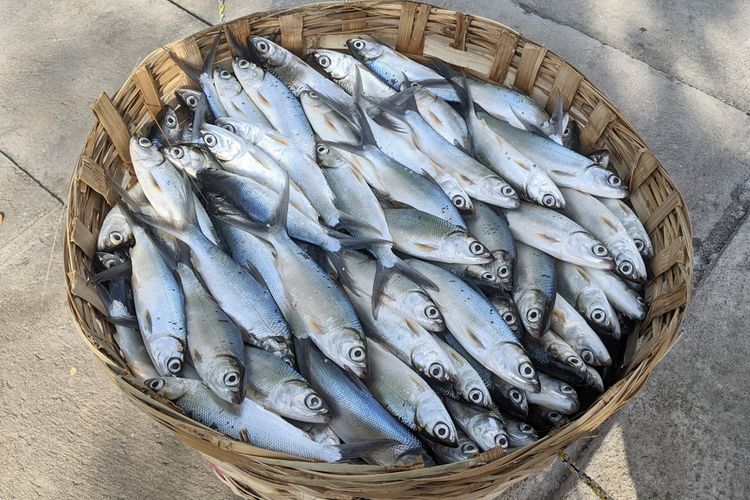Fish Milk: A Nutritious Alternative for Kids' Free Meals
Explore how fish milk can enhance children's nutrition in Indonesia's free meal programs, offering a delicious and affordable alternative to cow's milk.

Key Points
- Fish milk offers a nutritious, protein-rich, and lactose-free alternative to cow's milk, ideal for children’s diets.
- As a cost-effective option, fish milk can alleviate reliance on imported dairy while supporting local economies.
- The potential integration of fish milk into Indonesia's free meal programs aligns with national nutritional goals and utilizes abundant marine resources.
The conversation around nutrition for children in Indonesia is taking a revolutionary turn with the introduction of fish milk. As the nation grapples with an increasing need for healthier, affordable alternatives to cow's milk, especially for school meal programs, the innovative concept of fish milk has emerged as a promising solution. This protein-rich, allergen-free beverage has the potential to significantly enhance the dietary options available to children.
Fish milk, a product recently launched by the Ministry of Marine Affairs and Fisheries, is not actual milk derived from fish but rather a hydrolyzed fish protein concentrate. This innovative dietary supplement is crafted from fish species that are abundant and affordable, such as the petek and selar fish. The processing technique transforms the fish into a nutritious beverage that boasts a high protein content, omega-3 fatty acids, and vital nutrients—elements crucial for the development of growing children.

The Nutritional Advantages of Fish Milk
Fish milk is praised for its substantial nutritional profile. It contains higher amounts of omega-3 fatty acids compared to traditional cow's milk, which is essential for brain development in children. Furthermore, fish milk is free from lactose, making it a viable option for those who experience lactose intolerance—a common issue among many children. This lactose-free characteristic is particularly significant, as it means that fish milk can be consumed daily without the risk of allergic reactions.
In addition to its health benefits, fish milk is cost-effective. Preliminary calculations suggest that fish milk can be sold at a lower price point than cow's milk, with estimations of around Rp5,000 per serving compared to Rp6,400 for traditional dairy products. Such affordability means that integrating fish milk into free meal programs could alleviate some financial burdens on educational institutions while providing children with necessary nutrition.
Addressing the Needs of Indonesian Children
The urgency for fish milk arises from Indonesia's current situation concerning dairy consumption. With imports of dairy products amounting to a significant percentage of total consumption, the nation faces challenges in meeting its protein requirements. Reports indicate that while the national average protein intake is at 62 grams per capita per day, this remains below desirable levels, especially compared to countries like Vietnam, which stands at 94 grams per capita.
As the government, particularly under the leadership of President-elect Prabowo Subianto, aims to support the Free Nutritious Meal Program, the idea of investing in locally sourced fish milk aligns perfectly with national goals. This approach not only addresses nutritional gaps but also harnesses Indonesia's rich marine resources, thereby promoting local economic growth.
Challenges and Considerations
While the introduction of fish milk is promising, several factors must be taken into account. As pointed out by nutrition experts, the availability and consistency of fish milk production need to be ensured to make it a staple in daily diets. Moreover, there are still discussions regarding the acceptance of fish milk among consumers, especially among children who might be accustomed to the taste of conventional dairy. Thus, awareness campaigns and taste-testing initiatives will be vital to ensure that this transition is smooth and successful.
Another critical aspect is maintaining the quality and safety of fish milk products. Stringent regulations and quality checks will be essential to foster trust in consumers. As the program moves forward, gathering feedback from children and parents alike will help refine the product and optimize its acceptance.
As Indonesia embarks on this nutritional journey, the introduction of fish milk signifies more than just an alternative drink; it embodies the potential for transformative change in dietary practices, especially among the vulnerable populations like children. With cooperative efforts from government bodies, local producers, and communities, fish milk could very well become a staple in children’s diets, enhancing their growth and health.
Through innovative solutions such as fish milk, Indonesia is taking steps towards a more sustainable and healthier future. This initiative not only aims to provide immediate dietary benefits but also encourages the utilization of local resources, paving the way for a vibrant aquaculture industry.